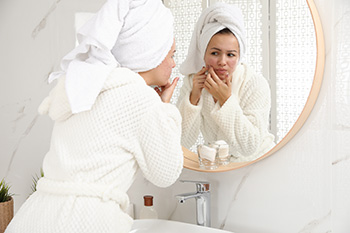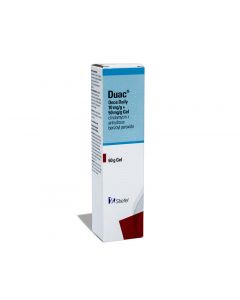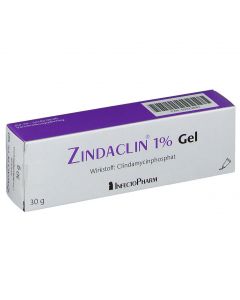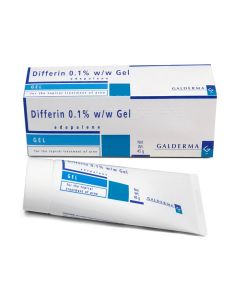Acne Treatment
Treatments
-
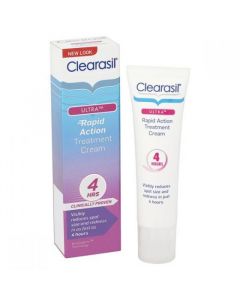 Clearasil Rapid Action CreamFrom As low as £6.89
Clearasil Rapid Action CreamFrom As low as £6.89- Visibly reduces redness and blemishes
- Works within just 4 hours
- Gently exfoliates the top layer of skin
-
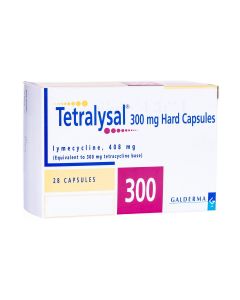 TetralysalFrom As low as £24.99
TetralysalFrom As low as £24.99- Commonly used to treat acne
- Very effectively reduces redness and skin inflammation
- Branded version of Lymecycline
-
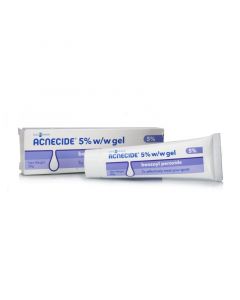 Acnecide Gel 5%From As low as £9.99
Acnecide Gel 5%From As low as £9.99- Attacks "Propionibacterium acnes", which is one of the main causes of acne
- Improves the appearance of Acne on the Face
- Reduces the appearance of redness and irritation
-
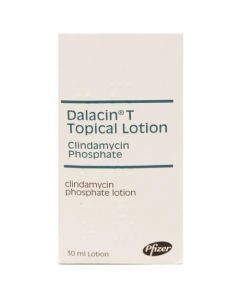 Dalacin-T Topical Lotion 60mlFrom As low as £24.99
Dalacin-T Topical Lotion 60mlFrom As low as £24.99Buy Dalacin-T Topical Lotion online to treat the appearance of acne
-
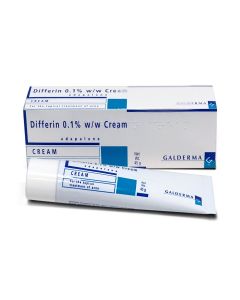
-
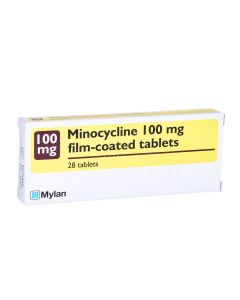 Minocycline
MinocyclineBuy Minocycline 100mg tablets online for effective acne treatment
-
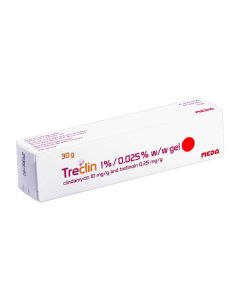 Treclin Gel
Treclin Gel- Applied as a topical gel
- Used to treat mild - moderate acne
- Contains the retinoid Tretinoin
-
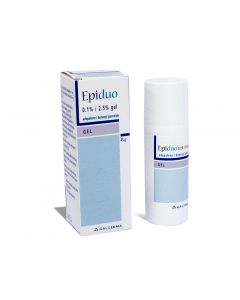 Epiduo GelFrom As low as £29.99
Epiduo GelFrom As low as £29.99- Treats moderate to severe acne
- Topical retinoid treatment
- Fights against acne causing bacteria
-
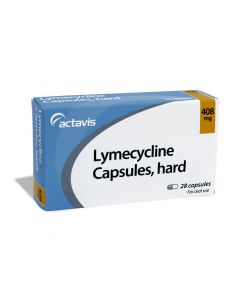 Lymecycline Capsules (408mg)From As low as £19.99
Lymecycline Capsules (408mg)From As low as £19.99- Effective in the treatment of Acne
- Reduces redness and inflammation of the skin
- Prevents skin pores from clogging
Please note brand received may vary
-
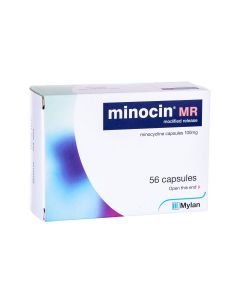 Minocin MRFrom As low as £34.99
Minocin MRFrom As low as £34.99Buy Minocin 100mg Modified Release Capsules online to help treat acne
Please note brand received may vary
-
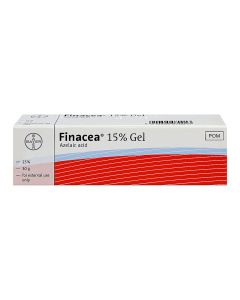
-
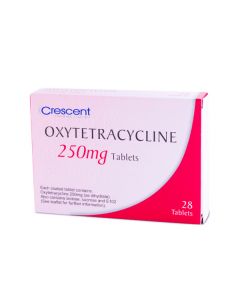 Oxytetracycline TabletsFrom As low as £45.99
Oxytetracycline TabletsFrom As low as £45.99Buy Oxytetracycline 250mg tablets online to treat the appearance of Acne
Please note brand received may vary
What is Acne?
Acne is a common skin condition which causes oily skin, spots or hot and painful areas of skin. It can affect people of all ages, and many people experience acne during their life. However, as it is linked to changes in hormones, teenagers and pregnant women are the most vulnerable to acne.
You can experience acne in varying degrees. Some people are fortunate to only have mild acne which comes up as the occasional few pimples. Unfortunately, some people can experience severe acne which can produce cysts and a flare up of spots.
Acne can be very embarrassing for many people, making them feel depressed and unhappy about their appearance. However, there is a wide range of treatment out there to treat both the internal causes of acne and the physical manifestations, such as pimples and redness to the skin. After an online consultation with a certified doctor, you can order acne treatments from our online pharmacy with a valid prescription. If you order by 2pm, we can offer you free next day delivery.
Acne Symptoms
Most people who suffer from acne will have it on their face; more than half of the people affected by acne will also get it on their back, with around 15% getting it on their chest.
There are six different types of spots which are caused by acne. If you suffer from acne, you may have any of the following:
- Blackheads – plugged pores which are dark or black in colour
- Whiteheads – plugged pores which are closed and yellow or white in colour
- Papules – small red bumps which can feel sore or tender
- Pustules – large lumps that grow beneath the surface of the skin and can be sore
- Cysts – these carry the biggest risk of scarring; cysts are large pus-filled lumps that look like boils
Nodules – hard lumps that build up beneath the skin's surface; these can be painful.
What Causes Acne?
Acne is caused by a combination of biological processes on the skin. Usually, it begins with a change in hormone levels. For this reason it is very common for those who are pregnant, or going through puberty or menopause, to suffer from acne.
As hormones increase during these cycles, it disrupts the balance. Some hormones are responsible for increasing the oil production. An increase in oil, or sebum, on the skin causes acne in two ways.
Firstly, sebum blocks hair follicles, causing whiteheads or blackheads. Secondly, the increase in sebum irritates a usually harmless bacterium which lives on the skin, P.acnes.
P.acnes is the bacteria which creates pus and infection. Contamination may then occur, which causes papules, pustules, nodules or cysts. Contaminated spots are also the beginning of more moderate or severe acne.
If you do suffer with acne, there are some triggers which can cause it to worsen. These include:
- Cosmetic products such as makeup
- Medications – steroids, anti-depressants or some anti-epileptic treatments
- Wearing clothes which press on the problem areas such as head bands, caps or backpacks
- Smoking
Acne Diagnosis
If you are worried you have developed acne, you can visit your doctor. A GP will be able to confirm a diagnosis of whether it is mild, moderate or severe acne by looking at your skin. They will take a look at all areas affected by the spots.
Your doctor may count the number of whiteheads, blackheads or sore nodules on your skin to assess the severity of your acne.
If you think your acne is mild, a pharmacist will be able to offer advice on products and treatments to help get rid of acne. If your doctor believes you have severe acne, they may put you on a course of antibiotics and/or topical cream, or refer you to a specialist.
Acne Treatment
If your acne does not respond well to the use of over the counter products, it is recommended you that visit a dermatologist or GP. Topical retinoid creams such as Epiduo gel, Treclin gel and Isotrexin gel are common examples of prescription medication.
Retinol is derived from vitamin A, which works by breaking down the top layer of your skin and removing dead skin cells. By removing dead skin cells from the surface of the skin it helps to reduce the risk of pores becoming clogged. By breaking down skin cells, it encourages the cell turnover cycle. An increase in cell turnover evens the skin and can remove redness.
Usually, retinoid treatments are introduced to your routine slowly. You may begin using a retinoid cleanser in the evening 3 times a week and build up to using it daily.
Antibiotics are also prescribed to treat acne. Common branded examples are Oxytetracycline, Minocycline, Tetralysal and Minocin. Anti-acne antibiotics kill excess skin bacteria and reduce redness. Antibiotic treatment is often paired with a benzoyl peroxide product so that the bacteria doesn’t become resistant to the medication.
Another acne treatment is azelaic acid, which is often used as an alternative treatment to benzoyl peroxide or retinoid cream if they have not worked. Azelaic acid works by killing bacteria and eliminating dead skin cells that can plug hair follicles, just like benzoyl peroxide products. Azelaic acid products are available to purchase from a pharmacy with a prescription.
Our pharmacists and prescribers follow NICE guidelines when prescribing various acne medications.
Doctor Notes
Acne can have a huge effect on an individual’s self-confidence as it primarily affects areas that are most seen by others, such as the face. You do not have to suffer in silence with acne, there are a number of acne treatments, tablets and topical creams that are available to buy online and help with the appearance of acne. If you suffer with acne, start your online consultation with one of our UK prescribers. All our acne treatments are sourced in the UK and are clinically proven to help improve the appearance of acne. You do not need an acne prescription, our online prescribers, pharmacists, and doctors will carry out an online assessment to help you find the most suitable treatment.
Hussain Abdeh
Pharmacist
This content has been written by Hussain Abdeh and has been medically reviewed by Sonia Khan
View Profile
